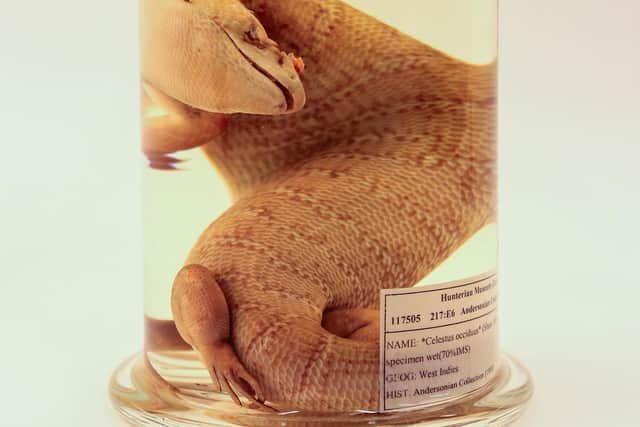Giant 170-year-old lizard to be returned to Jamaica by Scottish university in repatriation first
A 170-year-old Jamaican lizard is to be returned to its native country from Scotland – in the first repatriation of a natural history specimen to the Caribbean.
The Jamaican Giant Galliwasp, which is thought to have been collected in the 1850s and is presumed to be extinct, will be returned to its homeland Jamaica in a partnership between the University of Glasgow and the University of the West Indies (UWI).
Advertisement
Hide AdAdvertisement
Hide AdThe repatriation is being hailed as a step forward in reparatory justice for natural history collections. The university said it signifies a commitment to “rectify past injustices” and ensure Caribbean ownership of its scientific and cultural treasures.


The repatriation comes as museums in the West are coming under increased pressure to return artefacts taken from their native countries in the past.
The lizard, which was last recorded in the mid-19th century, has had more recent unconfirmed sightings from locals in Jamaica. However, difficulties in accessing the Black River Morass have meant researchers have not been able to establish whether or not the animal is fully extinct. It was believed the Galliwasp population was exterminated by introduced predators such as the mongoose.
Steph Scholten, director of the Hunterian at the University of Glasgow, which has had the lizard in its collections for almost 140 years, said: “The Jamaican Giant Galliwasp lizard specimen that will return to its homeland Jamaica became part of our collections in 1888.
"It was selected for interpretation and display in the Hunterian Museum by Professor Churnjeet Mahn, one of the community curators who worked on The Hunterian’s ‘Curating Discomfort’ project. This is part of The Hunterian’s active and critical engagement with its historic legacy, making it a more meaningful place for more diverse audiences.”
She added: “We hope that this return will help foster further relationships between the University of the West Indies and the University of Glasgow, as well as deepen understanding of repatriation issues in the museum sector.”
Professor Sir Hilary Beckles, vice-chancellor of the UWI, said: “The reparatory justice movement deals with various issues of different scales that must be addressed. By returning the Galliwasp to its rightful place, we take a small, but significant step towards laying the foundation for a regional and international discussion on repatriation.”
A joint team from the UWI and the Institute of Jamaica will travel to Glasgow to retrieve the specimen next week and will return it to Jamaica on Wednesday. An official handover ceremony will be held as the artefact will be deposited in the Natural History Museum of Jamaica on permanent loan in the national flora and fauna collection.
Advertisement
Hide AdAdvertisement
Hide AdThe initiative is in line with other ongoing strategic efforts between the two institutions, including the joint Master's Programme in Reparatory Justice, which aims to facilitate a deeper understanding of the demand for reparations justice.
Comments
Want to join the conversation? Please or to comment on this article.
